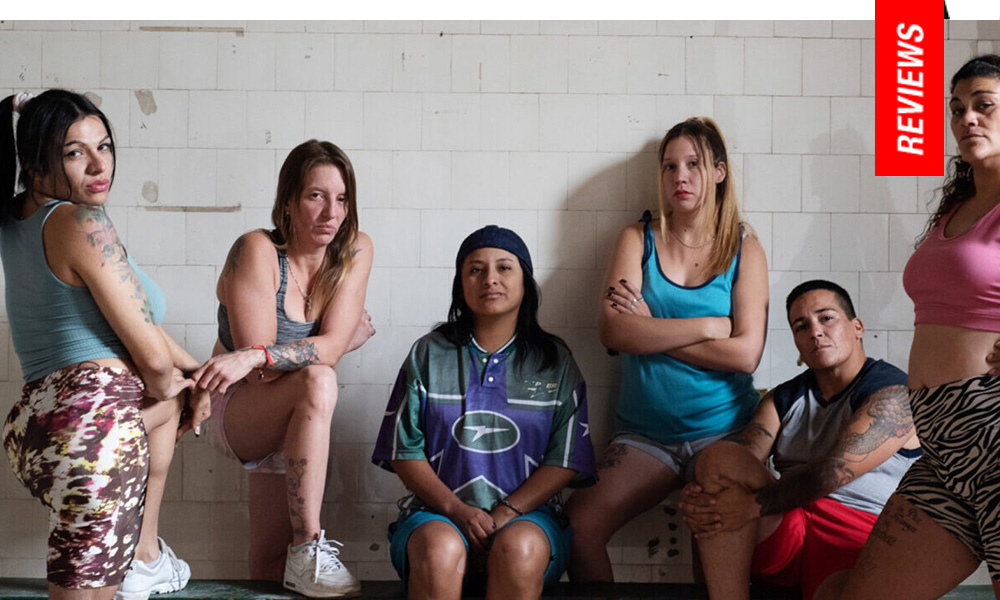Caged Birds Singing: Arias Re-enacts Prison Experiences
Yoseli (Yoseli Arias) is the main point of entry, a new inmate in a Buenos Aires women’s prison serving time for drug trafficking. Initially, she’s reluctant to accept invitations to one of the prison’s chosen families, preferring to isolate, which she inevitably realizes is impossible. Her gruff cellmate bluntly confirms this is not a place where gossip or backstabbing is acceptable, as the women have learned it’s better to support one another (even though this isn’t always the reality). She’s eventually drawn to the charming Nacho (Ignacio Amador Rodriguez), a trans man arrested for swindling. Having assembled a band, and allowed time to practice for an upcoming event at the prison, Nacho coaxes Yoseli out of her shell, and the two eventually marry.
Music eventually takes over as Reas goes on, the women breaking into synchronized choreographies to relay experiences. Sometimes, these moments aren’t quite as captivating as they should be, though this works best as a way to convey a prison yard dance fight, which is reminiscent of something like West Side Story. More interesting is the presentation of intersecting cis women and their trans counterparts, feeling more like an assorted collage of experiences more similar than they are different. This is a long way off from the exploitative examples of contemporary women-in-prison films broaching trans experiences, such as Jules Stewart’s (mother of Kristen) grungy 2012 indie K-11.
A novel, even cathartic approach as a way to re-enact past traumatic experiences, Reas works effectively as a collective rather than with any of its isolated individual elements. By the time we get to the finale, where the crumbling facade of the prison has dissipated, like some toxic mirage as the inmates muse on their future plans, Arias ends on a moment suggesting something more potent might exist beyond the end credits.
Reviewed on February 18th at the 2024 Berlin International Film Festival – Forum section. 82 mins.
★★½/☆☆☆☆☆
